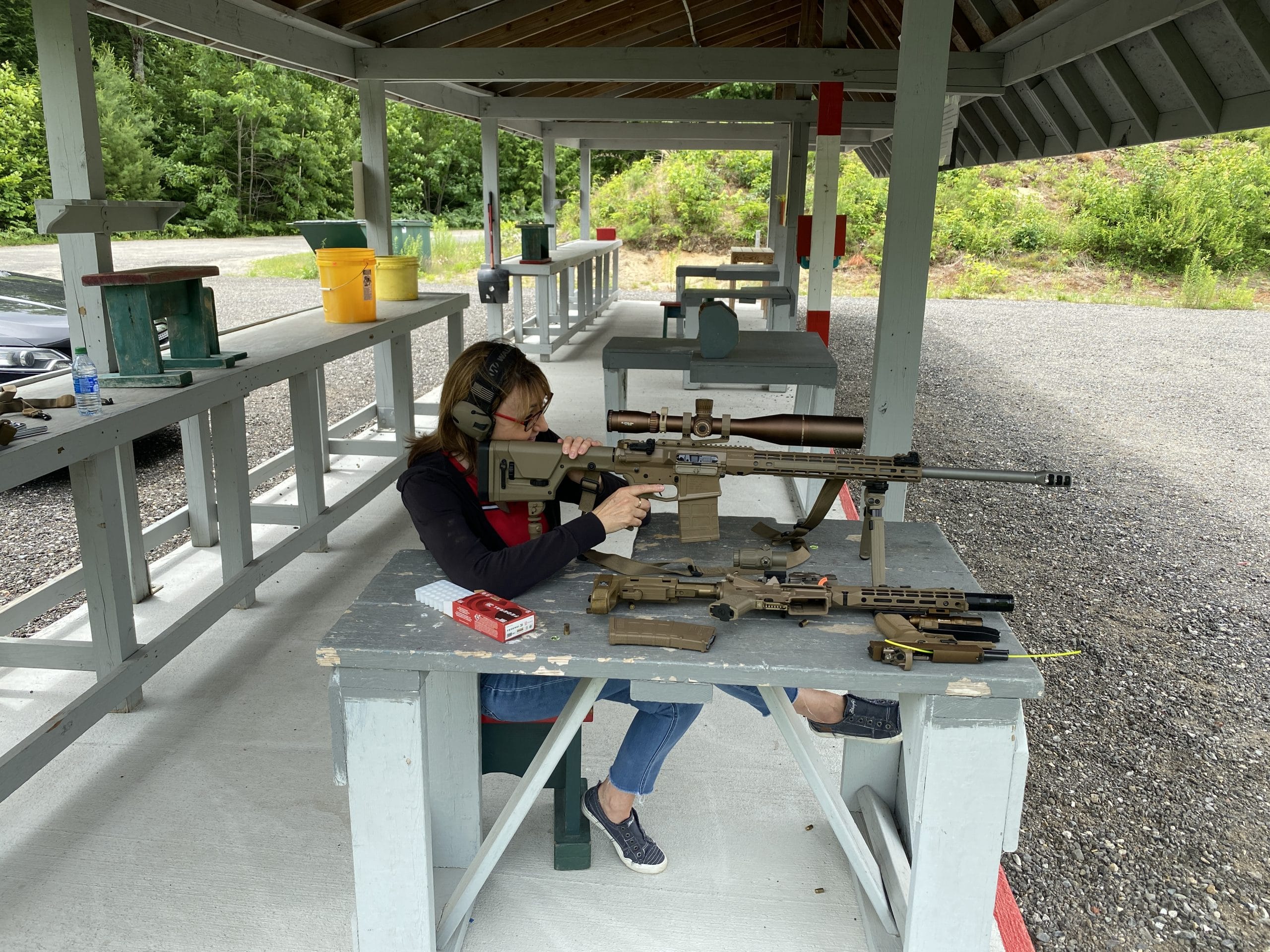
Categories:
Understanding the importance of shooting range partnerships involves recognizing the crucial roles they play in enhancing community engagement, promoting safety, and ensuring the sustainability and growth of shooting sports. At the core, these partnerships create a vital link between shooting ranges, local communities, businesses, and governing bodies. By fostering collaboration, shooting range partnerships help demystify the shooting sports for those unfamiliar with them, providing a platform for education and a shared understanding of responsible gun use.
This shared responsibility reinforces a culture of safety, which is paramount in reducing accidents and fostering a respectful and secure environment for both avid sportspeople and newcomers.
Furthermore, strategic partnerships often provide access to resources that enhance the viability and scope of shooting ranges. Collaborations with local businesses, for instance, can result in sponsorships or financial support for infrastructure maintenance, upgrades, or expansion projects. Partnerships with professional shooting organizations or gun manufacturers can introduce expert training programs that increase the skill level and competitiveness of local shooting enthusiasts.
Additionally, partnering with law enforcement and emergency response agencies can improve crisis management and first aid readiness at the range.
From a community perspective, shooting ranges that engage in partnerships are more likely to build a positive public image, mitigating misunderstandings and fostering goodwill. Educational programs open to the public not only serve to dispel myths about guns but also introduce shooting sports as legitimate, disciplined, and enjoyable recreational activities. These programs promote inclusivity and attract a wider demographic – from youth programs introducing younger generations to the sport, to organized events catering to diverse groups from various backgrounds.
In conclusion, shooting range partnerships are instrumental in creating a sustainable, well-regulated environment that champions safety and community involvement while supporting the broader industry. Their success depends on a shared vision of promoting responsible engagement with shooting sports, ultimately leading to a harmonious balance between personal enjoyment and community welfare.
Collaborating with shooting ranges can offer a multitude of benefits for businesses and organizations seeking to expand their influence and engage with specific target audiences. One of the primary advantages is the ability to tap into an established and dedicated community of shooting enthusiasts. This enables partners to reach a concentrated audience with a shared interest, making marketing efforts more effective and tailored.
Moreover, shooting ranges often have robust customer bases ranging from novice shooters to seasoned professionals, offering partners a diverse array of potential clients who are passionate and ready to engage with complementary products and services.
Additionally, shooting range partnerships can enhance brand visibility and credibility. Associating with well-regarded ranges can bolster a brand’s image by demonstrating commitment to quality and authenticity within the outdoor and guns sectors. Partnering with shooting ranges also provides unique opportunities for experiential marketing. Businesses can organize events, workshops, or demonstration days where customers can interact directly with their products, thereby fostering deeper connections and creating memorable experiences that traditional advertising may not achieve.
Such collaborations also afford businesses the chance to gather on-the-ground feedback and insights from users in a real-world setting. This immediate feedback loop allows for swift adjustments to marketing strategies or product offerings, ultimately aligning them more closely with customer needs and expectations. Moreover, partnering with shooting ranges can facilitate joint ventures in educational and safety programs. This not only reflects positively on the company’s social responsibility but helps enhance community relations by investing in safe and sustainable practices within the sport.
Finally, these partnerships can pave the way for cross-promotional opportunities, where businesses can leverage the range’s local presence and reputation to introduce new products and promotions, potentially at a reduced marketing cost. By collaborating with shooting ranges, companies can therefore enjoy enhanced engagement, brand loyalty, and accelerated business growth.
Identifying potential partners in the shooting range industry requires a strategic approach that balances common business objectives with a shared vision for safety, education, and innovation. The industry, although niche, offers a variety of partnership opportunities that can drive growth and enhance services for customers. To begin, it is essential to understand the diverse ecosystem that encompasses shooting ranges. Potential partners may include gun manufacturers, ammunition suppliers, safety equipment producers, and technology firms specializing in range management software.
Establishing relationships with these entities can provide access to the latest products, ensure a steady supply chain, and integrate advanced technologies that enhance customer experience.
Another avenue for collaboration involves engaging with educational institutions and professional training organizations. Partnerships with these entities can enable shooting ranges to host certification courses, safety workshops, and marksmanship classes, creating a venue for learning and skill development. This can be particularly appealing as it not only adds value to the shooting range’s offerings but also positions it as a leader in promoting responsible gun use and safety awareness.
Moreover, reaching out to local law enforcement agencies and military organizations can be mutually beneficial. These collaborations could lead to agreements for these groups to use the facilities for training exercises, providing ranges with steady business while offering these organizations access to a controlled environment for rigorous training.
Networking within industry associations and attending relevant trade shows or conferences can also be instrumental in establishing connections with other range operators and stakeholders. These venues offer an environment to exchange best practices, discuss industry trends, and foster potential collaborations that could result in joint ventures or co-marketing opportunities.
In essence, identifying potential partners requires a keen understanding of the industry landscape and a proactive approach to building symbiotic relationships. Aligning with partners that have complementary strengths and shared goals can not only drive business growth but can also elevate the overall standard of service and safety within the shooting range industry.
Building strong shooting range partnerships requires a strategic and thoughtful approach that emphasizes mutual benefits, clear communication, and long-term commitment. The foundation of any successful partnership is understanding the goals and objectives of both parties involved. It is essential to establish common ground, identifying areas where each party can benefit and grow. This involves open and honest communication from the outset, setting the stage for a collaborative relationship.
One key strategy is to clearly define the roles and responsibilities of each partner. By delineating what is expected from each party, potential misunderstandings can be minimized, and accountability can be maintained. This clarity fosters trust and ensures that both partners are working towards shared objectives. Regular check-ins and updates can help keep the partnership on track and address any issues or changes that may arise.
Another important aspect is leveraging the unique strengths and resources of each partner. Shooting ranges can benefit from partnering with organizations that complement their services, such as gun manufacturers, training instructors, or local law enforcement agencies. By combining resources and expertise, shooting ranges can enhance their offerings and attract a broader audience. This synergy not only improves the range’s services but also strengthens the bonds between partners, as each party feels their contributions are valued.
Investing in joint marketing efforts can also prove beneficial. Collaborative promotional campaigns can highlight the partnership, increasing visibility and drawing attention to the benefits available to customers. Co-hosting events or seminars focused on safety, skill development, or new technologies can further solidify the partnership while providing added value to the community served.
Lastly, a successful partnership thrives on flexibility and adaptability. As circumstances evolve, so too should the terms of the partnership. Being open to reassessing and adjusting the relationship as needed can help maintain a positive and productive collaboration over time. By employing these strategies, shooting ranges can build partnerships that are resilient, dynamic, and mutually rewarding.
When entering into shooting range partnerships, it is essential for involved parties to have a keen awareness of the legal and regulatory considerations that underpin such collaborations. This ensures that the partnerships are not only operationally effective but also compliant with the law, thus minimizing potential legal liabilities. A central focus for most partnerships should be adherence to federal, state, and local guns regulations.
This includes ensuring that all partners hold the necessary licenses and permits to conduct business involving guns. Violations of these regulations can result in severe legal consequences, including the revocation of licenses, substantial fines, and even criminal charges.
In addition to compliance with guns-specific regulations, partnerships must also navigate general business laws that apply to all types of commercial collaborations. This includes drafting comprehensive partnership agreements that clearly delineate the responsibilities, profit sharing, and decision-making processes of each party. Such agreements help in preventing disputes and provide mechanisms for resolution should disagreements arise. Furthermore, given the inherently hazardous nature of shooting ranges, liability insurance is a critical consideration.
Partnerships should ensure they are adequately covered to protect against claims resulting from accidents or injuries occurring on-site. This also covers ensuring that safety protocols are not only established but rigorously enforced.
Environmental regulations also play a significant role, as shooting ranges can have considerable environmental impacts, particularly concerning lead contamination. Partners must ensure compliance with environmental standards to prevent harmful pollution, which could lead to costly clean-up operations and legal penalties. The collaboration should work towards implementing sustainable practices and technologies to mitigate their environmental footprint. Lastly, ensuring community engagement and adhering to zoning laws is indispensable.
Shooting ranges can often be subjects of local contention; thus, it is vital to work with local communities to gain support and understanding, which includes complying with zoning and noise ordinances. By carefully considering and addressing these legal and regulatory aspects, shooting range partnerships can establish a robust foundation for successful and law-abiding operations.
Building and maintaining successful shooting range partnerships requires a strategic approach grounded in mutual benefit, open communication, and shared goals. The foundation of any strong partnership is clear and consistent communication. Regular meetings, whether in person or virtual, where all parties have the opportunity to voice opinions, discuss concerns, and align on objectives, are critical. This ensures that everyone involved is on the same page and that misunderstandings are minimized.
Moreover, it’s crucial to establish clear and realistic goals from the outset. Both parties should agree on what they hope to achieve through their partnership, whether it’s increasing membership, expanding services, or improving safety standards. These objectives should be periodically reviewed and adjusted as necessary to reflect changing circumstances or priorities. Transparency in financial dealings and decision-making processes also plays a key role in maintaining trust and accountability between partners.
Another best practice is to invest in joint marketing efforts. Coordinated campaigns can help attract new clients and raise awareness about the shooting range. By pooling resources and expertise, partners can create more impactful marketing strategies than they could achieve alone. Furthermore, leveraging each other’s networks by co-hosting events or workshops can also bring added value. This not only builds community but strengthens the partnership by creating a shared sense of purpose and joint contribution to success.
It is also important to cultivate a culture of continuous improvement and learning. Partners should be open to feedback and willing to adapt their practices. This might involve integrating new technologies, updating safety protocols, or innovating service offerings based on market trends and customer feedback. Regularly evaluating the effectiveness of the partnership itself is also beneficial; conducting annual reviews can help identify what’s working and areas needing improvement.
Finally, emphasizing a shared commitment to safety, professionalism, and customer satisfaction ensures that the partnership remains resilient and beneficial for all stakeholders involved. Building a partnership on these core values creates a stable foundation for enduring mutual success.
Measuring the impact and success of shooting range partnerships involves a multidimensional approach that evaluates both quantitative and qualitative outcomes. One of the primary indicators of success is the increase in foot traffic and membership enrollment at the shooting ranges involved in the partnership. By comparing data from periods before and after the partnership was established, stakeholders can gauge whether the collaboration has effectively attracted more visitors.
Additionally, financial metrics such as revenue growth from membership fees, merchandise sales, and event bookings provide a tangible means of assessing the partnership’s economic benefits.
Beyond financial and foot traffic metrics, the effectiveness of shooting range partnerships can also be measured by the enhancement of customer experiences and satisfaction levels. Surveys and feedback forms are valuable tools for capturing patrons’ experiences and perceptions, which help determine whether the partnership has fostered a more appealing and user-friendly environment. Metrics such as customer retention rates and net promoter scores can further illuminate the partnership’s impact on customer loyalty and advocacy.
Another crucial element in assessing success is the partnership’s contribution to community engagement and social responsibility. This can be measured by examining the programs and initiatives implemented through the partnership and their reach, such as youth education programs, safety workshops, or community events. Tracking participation numbers and soliciting feedback from participants can provide insights into the effectiveness and resonance of these initiatives.
Lastly, the strategic goals set forth at the inception of the partnership should serve as benchmarks for success. These objectives, whether focused on operational efficiency, educational outcomes, or environmental sustainability, offer a framework for evaluating long-term impacts. By employing a balanced scorecard approach that integrates financial performance, customer satisfaction, community engagement, and strategic goal achievement, shooting ranges can comprehensively assess the success of their partnerships and identify areas for further improvement or expansion.








Colt
Colt M4 Carbine
Colt LE6920
Colt AR-15 A4
Daniel Defense
DDM4 V7
DDM4 V9
DDM4 V11
DDM4 ISR (Integrally Suppressed Rifle)
Smith & Wesson (S&W)
M&P15 Sport II
M&P15 Tactical
M&P15T
Bravo Company Manufacturing (BCM)
BCM Recce-16
BCM Recce-14
BCM MCMR Series
Aero Precision
M4E1 Series
AC-15
AR15 Pistol (Various Configurations)
Ruger
Ruger AR-556
Ruger SR-556
Ruger AR-556 MPR (Multi-Purpose Rifle)
Springfield Armory
Saint Victor
Saint Edge
Saint AR-15
PSA (Palmetto State Armory)
PSA PA-15
PSA AR-V
PSA Jakl (AR Pistol)
FN America
FN 15 Tactical Carbine
FN 15 Patrol
FN 15 DMR
Wilson Combat
Recon Tactical
Super Sniper
Protector Carbine
SIG Sauer
SIG M400 Tread
SIG M400 Elite
SIG M400 SDI
LWRC International
IC DI (Direct Impingement)
IC SPR
IC A5
Bushmaster Guns
XM-15 QRC
Bushmaster MOE
XM-15 Patrolman
Rock River Arms
LAR-15 Entry Tactical
LAR-15 Predator
LAR-15 Elite Comp
Stag Arms
Stag 15 Tactical
Stag 15L (Left-Handed Models)
Stag 15 Valkyrie
Noveske Rifleworks
Noveske Gen 4 N4
Noveske Space Invader (AR Pistol)
Noveske Recon
Anderson Manufacturing
AM-15 Optic Ready
AM-15 M4 Carbine
AM-15 Precision Rifle
Adams Arms
AA-15 Piston Rifle
P2 AARS (Adams Arms Rifle Series)
Black Rain Ordnance
SPEC15 Series
BRO Predator
Fallout 15
Diamondback Guns
DB15 Series
DB15CCMLB
DB15EB
Del-Ton Inc.
DTI-15
Del-Ton Echo 316H
Sierra 316M
Windham Weaponry
Windham SRC
Windham VEX-SS
Windham RMCS-4 (Caliber Conversion System)
Christensen Arms
CA-15 G2
CA-15 Recon
CA-15 Titanium Edition
Patriot Ordnance Factory (POF-USA)
Renegade Plus
P415 Edge
Revolution DI
LaRue Tactical
PredatAR
OBR (Optimized Battle Rifle)
LaRue Stealth 2.0
Battle Arms Development
Workhorse Patrol Carbine
BAD556-LW (Lightweight)
Authority Elite Rifle
Faxon Guns
Ascent AR-15
FX-19 (AR Pistol)
Streamline Ultralight Series
KE Arms
KE-15 SLT (Super Lightweight Tactical)
KE-15 Scout Carbine
Primary Weapons Systems (PWS)
MK1 MOD 2-M
MK116 PRO
MK107 (Piston AR Pistol)
ZEV Technologies
ZEV Core Elite Rifle
ZEV AR15 Billet Rifles
Franklin Armory
BFSIII AR-C1
Militia Model
F17-L (Chambered in .17 WSM)
Seekins Precision
SP15 DMR
NX15 Skeletonized Rifle
Havak Bravo
Aero Precision (Additional Models)
EPC-9 (Pistol Caliber ARs)
VG6 AR Rifles
Barrett Guns
REC7 DI
REC7 Gen II
CMMG
MK4 RCE
Resolute 300
Banshee (AR Pistol)
DPMS Panther Arms
Panther Oracle
Panther LR-308
H&K (Heckler & Koch)
HK MR556A1
HK416 (Military Variant)
Rock Island Armory (Armscor)
VR-80 Tactical AR (Shotgun AR Platform)
Troy Industries
Troy SPC-A3
Troy PAR (Pump Action AR)
Wilson Tactical
Tactical Recon AR
Protector Series
F1 Guns
FDR-15 Skeletonized Rifle
BDRx-15 Series
Juggernaut Tactical
JT-15
JT-10 Precision Rifle
AeroSurplus
Surplus AR-15 Rifles (Budget Models)
Thunder Tactical
AR-15 Basic Carbine
Tactical Builder Sets
Radical Guns
RF-15
Forged AR-Series
Dark Storm Industries
DS-15 Featureless Rifles
DS-10 Typhoon
DRD Tactical
Paratus
Aptus AR Rifles
Bear Creek Arsenal
BCA-15
AR Complete Upper Builds
Aero Survival Rifles (ASI)
ASR Tactical Series
Tactical Edge
WARFIGHTER Series
AR-15 Lightweight Rifles
Lone Star Armory
TX15 DMR
TX15 Carbine
HERA Arms
HERA H7
HERA AR-15 Lower Builds
IWI (Israeli Weapon Industries)
Zion-15
DRD Tactical
Tactical Modular Rifles
Quick-Takedown Rifles
V Seven Weapons
1776 Rifle
Hyperlite Rifle
Core Rifle Systems
Core15 Tac III
Core15 Patrol Rifle
Armalite (Original AR-15 Creator)
M15 Tactical
M15 A4 Carbine
DEF15 (Defensive Sporting Rifle Series)
PSA (Palmetto State Armory Additional Models)
PSAK-47 Hybrid (AR-AK Style Hybrid)
PSA Dagger (Pistol Caliber Configurations)
Odin Works
OTR-15
Odin Recon Rifle
Maxim Defense
MDX-508 PDX (Compact AR Pistol)
MDX-510 Rifle